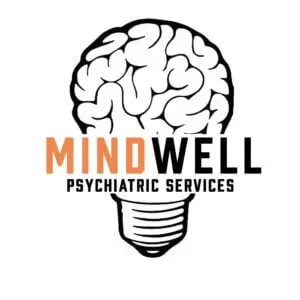Greetings to Mindwell Psychiatric Services! Understanding questions about mental health is crucial. It’s the first step towards better awareness and support. Discussing these questions openly can help everyone feel safe and supported. It’s essential for removing the stigma often linked to mental health issues. So, let’s start by asking simple yet important questions about our mental wellbeing.
In addition, asking about mental health can guide us in offering better support. Health surveys often reveal the need for more open conversations. These discussions, sparked by your questions, drive us at Mindwell Psychiatric Services to enhance our care. Therefore, never hesitate to reach out. Each question you ask plays a vital role in shaping our understanding and response to mental health challenges. Our collaboration with leading psychiatrists in Las Vegas, ensures that we stay at the forefront of mental health care, providing you with the best possible support.
The Importance of Asking Questions About Mental Health
Breaking Down Stigma
Asking about mental health is vital. It helps break down the stigma around mental illness. When people feel safe to ask open-ended questions, they often find they are not alone. This is key. At Mindwell Psychiatric Services, we encourage everyone to ask and discuss freely.
Insights from Questions
Moreover, these questions bring about big changes. Mental health surveys often use these insights to improve how we support you. Every research question, big or small, helps us learn more about mental wellness. This means we can help you better. Therefore, never hesitate to ask. Your questions are crucial.
The Power of Dialogue
In addition, talking about mental health can spot issues early. This can make a huge difference for someone’s recovery. That’s why ongoing dialogue is so important. It brings significant changes in how we understand and treat mental health.
Keep Asking, Keep Learning
So, keep the questions coming. Each one adds to our knowledge and helps shape better support at Mindwell Psychiatric Services. After all, every question about mental health is a step towards a healthier community. Together, we can change lives for the better.
Exploring Key Questions About Mental Health
What Are Common Symptoms of Depression?
Depression shows up in many ways. You might feel very sad, lose interest in things you once liked, or feel tired all the time. If these feelings last and affect your daily life, it’s time to talk to a mental health professional. They can help guide you through these tough times.
Recognizing Anxiety Symptoms
Anxiety can make you worry a lot, have trouble sleeping, or feel jittery. If this sounds like you, you’re not alone. These are common signs of anxiety. Remember, help is available. Talking to a mental health professional can provide relief and strategies to manage these feelings.
When to Seek Help: Questions About Mental Health and Professional Guidance
How Does Stress Affect Us at Work?
Stress can make you feel exhausted, irritable, or unable to focus. Many people feel this way, especially at work. It’s important to talk about your experiences. Sometimes, just sharing your feelings can start to make things better. Also, employers can often make changes that help reduce stress.
Supporting Someone with Mental Health Issues
Want to help someone struggling? Just being there and listening without judgment can mean a lot. Ask how you can help. Sometimes, encouraging them to speak with a professional at Mindwell can be the best support you offer.
The Connection Between Mental and Physical Health
Yes, mental issues can affect your body too. Stress and depression can lead to physical symptoms like poor sleep or headaches. That’s why taking care of your mental health helps your physical health too.
Sadness vs. Depression: What’s the Difference?
Feeling sad is normal and usually passes. But depression is deeper and lasts longer. It affects how you feel, think, and handle daily activities. If your sadness doesn’t go away and makes daily life hard, it might be depression. This is when talking to someone at Mindwell can really help.
Simple Ways to Manage Mental Health at Home
Taking care of your mental health at home is key. Try to stay connected with loved ones, keep a regular schedule, and find time for activities that make you feel good. Mindfulness and exercise can also support your mental health. If things get tough, reaching out to a professional is a wise step.
Asking Questions About Mental Health When Approaching Someone in Need
Supporting Others in Need
Approaching someone who is struggling with their mental health can be delicate. It’s important to handle these situations with care and understanding. Here at Mindwell Psychiatric Services, we often answer questions about mental health that help guide these conversations.
Recognizing the Signs
First, know the signs. Symptoms of anxiety, like constant worry or restlessness, are common. So, recognizing these can help you understand what the person might be experiencing. This is the first step in offering support.
Starting the Conversation
So, how do you start? Simply asking, How are you feeling? can open the door to a helpful conversation. It’s crucial to listen without judgment. Let them share as much or as little as they want. This shows you care and are there to support, not to push.
Being There
Sometimes, just being there is enough. Therefore, you don’t always need to offer solutions. Being a patient and supportive listener is powerful. Remember, these moments can feel very personal for the person sharing their experiences with you.
Offer Practical Help
If they’re open to it, suggest practical steps. So, this might include talking to mental health professionals or exploring mental health care options. At Mindwell, we provide support for various common mental disorders and can guide you on how to help.
Encourage Professional Help
Encouraging professional help is often necessary. Then, explain that mental health care is normal and beneficial. So, it can be a significant step towards recovery. Make sure they know that seeking help is a sign of strength, not weakness.
Respecting Their Space
Always respect their pace and space. If they’re not ready to talk, let them know you’re there when they are ready. Pressuring someone can make things harder. Instead, gently remind them that help is available whenever they choose to take it.
Follow Up
After your initial conversation, keep in touch. Then, a simple message asking how they’re doing can mean a lot. So, this continued support can make them feel less alone and more supported through their journey.
Resources and Getting Help
Mindwell Psychiatric Services Support
At Mindwell Psychiatric Services, we understand that having access to the right resources can significantly impact the treatment of mental health conditions. This is why we offer a variety of support tailored to meet individual needs, whether you’re dealing with a mental condition, seeking help for a friend, or need advice as an employer.
How to Contact Us
First off, if you have any questions about mental health, you can reach out directly to a psychiatrist in Las Vegas. So, it brings a wealth of experience in managing patient experiences and providing personalized care. Then, contacting Michael Kuron, MSN, APRN, PMHNP is simple: just call the office or visit the website to schedule an appointment. It makes it easy so that getting the help you need feels straightforward and stress-free.
Wide Range of Services
We offer services ranging from therapy sessions to medication prescription and management. Whether you’re experiencing symptoms for the first time or looking for ongoing support, we’re here to help. So, our team understands that each person’s experience with mental health is unique, and we tailor our services to match.
Support for Family and Friends
Supporting someone with a mental health issue can also be challenging. Therefore, we provide resources for family and friends to learn how to offer support effectively. This also includes workshops and support groups where you can learn from the experiences of others and professional advice.
Online Tools and Community Resources
Additionally, we recommend various online tools that can help you manage daily stress and anxiety. These tools include apps for mindfulness and relaxation, websites with helpful information, and forums for sharing experiences with peers. Also, local community resources can be invaluable. So, these might include local support groups, public health services, and educational sessions that provide guidance on the ketamine treatment of mental health issues.
Continued Support and Education
At Mindwell, we believe in continuous education. So, we also offer access to articles, blogs, and the latest research on mental health. Also, these resources are designed to answer your questions about mental health and help you stay informed about the best practices in mental health care.
Conclusion
Asking questions about mental health is crucial. It builds our emotional resilience and helps us cope with challenges like posttraumatic stress disorder. At Mindwell Psychiatric Services, we understand the power of these inquiries. They provide support and understanding, particularly for those grappling with intense experiences. So, if you or someone close to you is struggling, know that a range of resources is available to help improve situations, including those affecting sleeping habits.
Furthermore, these resources are designed to support not only individuals but also employees within workplaces. By fostering an environment where questions about mental health are encouraged, employers can significantly improve workplace wellness. So, explore the resources available at Mindwell, share them, and continue to engage in conversations about mental health. After all, each discussion can lead to better support networks and a healthier community overall. Therefore, keep asking, keep learning, and use the insights gained to foster resilience and recovery for yourself and those around you.
FAQs
What Are Common Signs of Mental Health Issues?
You might notice changes like persistent sadness, sudden loss of interest in activities, or excessive worry. So, recognizing these signs early is key to managing them effectively.
How Can I Improve My Overall Wellbeing?
Focus on good habits: eat well, exercise regularly, and ensure you’re getting enough sleep. Also, engaging in social activities and practicing mindfulness can greatly enhance your overall well being.
How Should I Approach a Colleague Exhibiting Signs of Mental Health Issues?
Start with a simple conversation. Ask how they are doing and listen without judgment. So, this approach can make them feel supported and more open to seeking help if needed.
Can Mental Health Issues Affect Physical Health?
Absolutely. Mental health significantly impacts physical health, affecting everything from energy levels to sleeping habits and overall physical condition.
What is Borderline Personality Disorder?
Borderline Personality Disorder (BPD) is a mental condition marked by unstable moods, behavior, and relationships. People with BPD may experience intense episodes of anger, depression, and anxiety, which can last from a few hours to days.
Why Is It Important to Discuss Mental Health in the Workplace?
Talking about mental health at work can foster a supportive environment. It helps reduce stigma and can lead to valuable insights from employees’ experiences, improving workplace culture and wellbeing.
What Are Effective Ways to Support Someone with Mental Health Issues?
Be there to listen, offer reassurance, and encourage them to seek professional help. Providing information about available resources, like those at Mindwell Psychiatric Services, can also be incredibly helpful.
How Do I Know If I Should Seek Professional Help?
If your emotions are overwhelming, disrupt daily activities, or you find yourself coping in unhealthy ways, professional help can be beneficial.
What Resources Are Available for Mental Health Support?
Mindwell offers various resources, including therapy, counseling, and support groups. There are also many online tools and apps that can help manage mental health conditions effectively.
How Can I Build Resilience Against Mental Health Challenges?
Building resilience involves maintaining strong social connections, managing stress effectively, and adopting a positive outlook. Activities like yoga, meditation, and regular physical exercise can strengthen your ability to handle mental health challenges.





